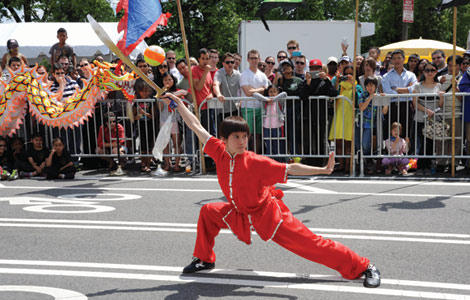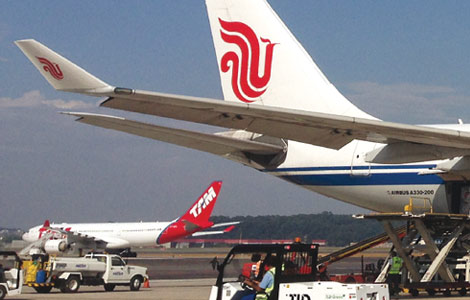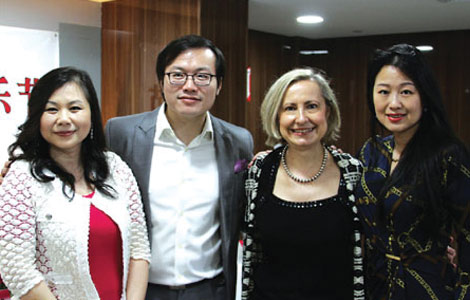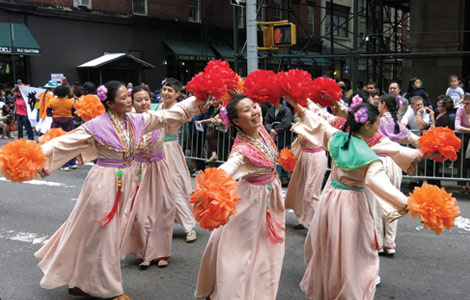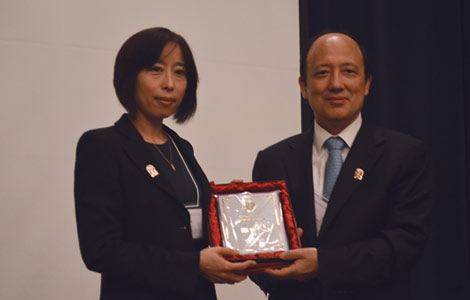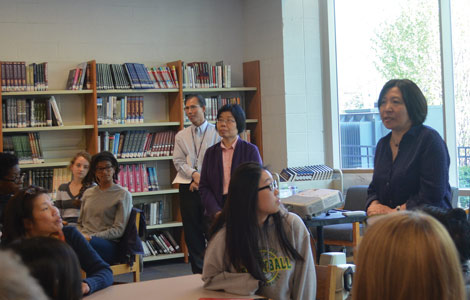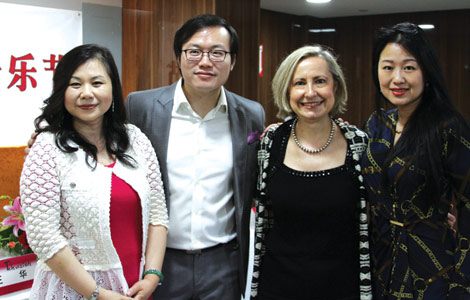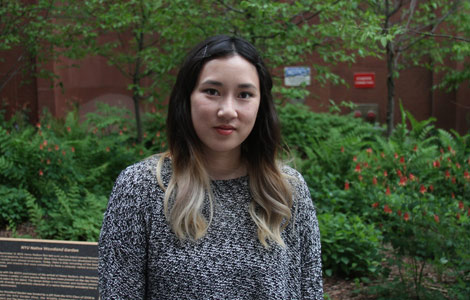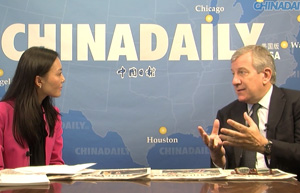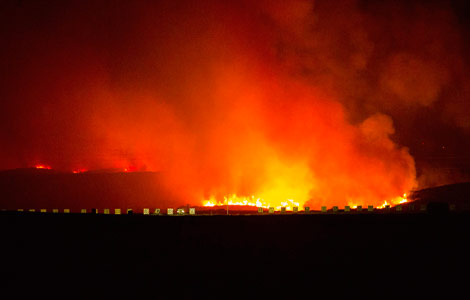ASEAN leader 'sends wrong signals on conflict'
Updated: 2014-05-20 07:47
(China Daily)
|
||||||||
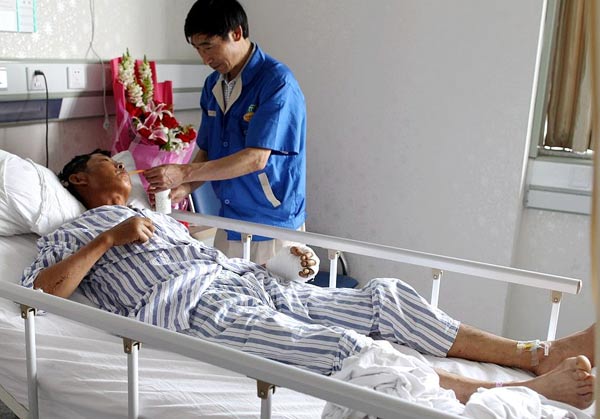 |
| Wang Chaoyong, 47, receives medical treatment in Chengdu, Sichuan province, after he and colleagues fled anti-China riots in Vietnam. ZHU XINGXIN / CHINA DAILY |
Bloc urged to avoid interfering in maritime issue, He Na, Yang Wanli, Hu Yongqi report.
|
Building bridges via education and cultural exchanges By Yang Wanli Zhu Yujia hasn't been sleeping well recently because the teacher of Vietnamese from Kunming, Yunnan province, is worried about the safety of 10 of her students who are currently studying at Hanoi University. "I call or send them messages every day to check if they're safe. Our school is working on a plan to bring them back as quickly as possible. Trains and buses might be our first, and also safest, option," said the 28-year-old. Zhu lived in Hanoi, the Vietnamese capital, for nearly two years from 2010. She taught Chinese at Hanoi University for a year, and her classes attracted more than 30 students every semester. "Many Vietnamese students took a great interest in China. A lot of students chose the course because they wanted to learn more about the culture or traditional Chinese medicine," she said. "Others wanted to gain a better understanding of Buddhism in China." The two countries have enjoyed a long relationship; cultural exchanges and language teaching have been boosted in recent years and now, about 30 Vietnamese colleges and universities offer Chinese language classes. Every year, Hanoi University hosts a range of activities - including a Chinese culture week, language classes, calligraphy contests and karaoke competitions - to help Vietnamese students learn more about China. The school also invites Chinese experts and teachers to work in Vietnam, and has a student exchange program with a number of universities in China. |
China has hit back at comments by the secretary-general of the Association of Southeast Asian Nations that Beijing's actions in the South China Sea have infringed Vietnam's territorial sovereignty.
Le Luong Minh also said China had violated the Declaration of Conduct of the Parties in the South China Sea.
Foreign Ministry spokesman Hong Lei said Le's comments ran counter to the ASEAN consensus and would hurt China-ASEAN ties. Beijing also called on Le "not to say or do things that are not commensurate with his position".
Hong made the remarks after Le told The Wall Street Journal that the first thing to do was to get China out of "the territorial waters of Vietnam", a move that he said would be conducive to restoring confidence in negotiations aimed at resolving the issue.
Hong emphasized that the South China Sea issue is not a dispute between China and ASEAN, and urged the group to abide by its own rules to not interfere in any particular conflict, and to safeguard China-ASEAN ties with concrete action.
"Le's statement did not match his status as the bloc's secretary-general because he "ignored the facts, violated ASEAN's neutral stance and unilaterally sent out the wrong signals", Hong said.
According to Xu Liping, a researcher into Southeast Asian studies at the Chinese Academy of Social Sciences, "The current friction between China and Vietnam is the result of strong harassment by Vietnamese vessels which undermined China's sovereignty and ocean rights, and sabotaged the normal maritime order.
"Beijing did not resort to extreme measures because China wanted to provide a chance for the two sides to negotiate and resolve the situation," he added.
Cooperation halted
The government has warned Chinese citizens against traveling to Vietnam and ordered the suspension of a number of bilateral cooperative projects, Hong said on Monday.
Two Chinese nationals have been killed and more than 100 others have been injured in riots that started on May 13 and have resulted in offices and factories owned by Chinese companies being looted and burned.
Since an evacuation plan was launched on Saturday, China has dispatched chartered planes from China Southern Airlines to airlift the injured to safety, and has dispatched four ships to the Vietnamese port of Vung Ang to evacuate nearly 4,000 Chinese nationals. Some Chinese in Vietnam have chosen travel to Cambodia for safety reasons, according to the ministry.
Violence and nightmares
Meanwhile, Chinese nationals who have fled Vietnam have been describing their experiences.
Jin Xiaomin headed home to Nanning in the Guangxi Zhuang autonomous region on Thursday.
The 24-year-old has worked as an assistant manager for China Hongyi Hardware Co in a key development zone at Binh Duong in southeastern Vietnam for three years. She said she's still shocked by the violence she witnessed, and has had nightmares about crowds of people using metal batons and chairs to smash windows, computers and desks in her office building.
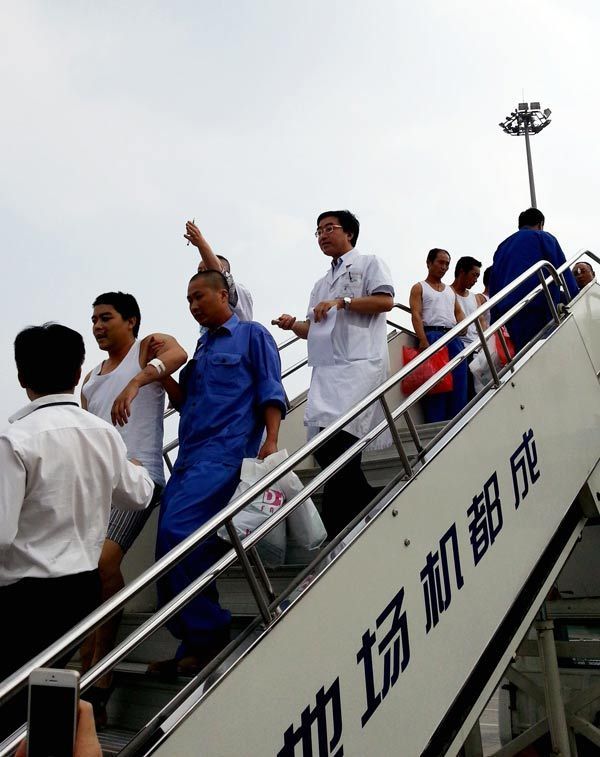 |
| Chinese workers arrive at Chengdu airport on Sunday aboard a flight chartered by the government. HAI MINGWEI/ XINHUA |
|
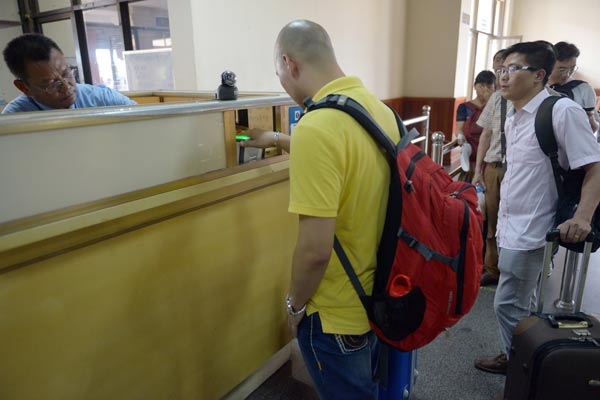 |
| A Chinese man scans his finger at an immigration checkpoint after arriving at Bavet city in Svay Rieng province, Cambodia. TANG CHHIN SOTHY / AFP |
Most Viewed
Editor's Picks

|

|

|

|

|

|
Today's Top News
China protests cyber theft indictment
Jumei IPO 'milestone'
Chinese foreign minister meets UN chief in Shanghai
Garment workers win $1.2 m
Chicago students prep for China trip
AT&T agrees to buy DirecTV in $48.5B deal
Chinese investment bolsters EB-5 visa program
China, US boost military ties
US Weekly

|

|
